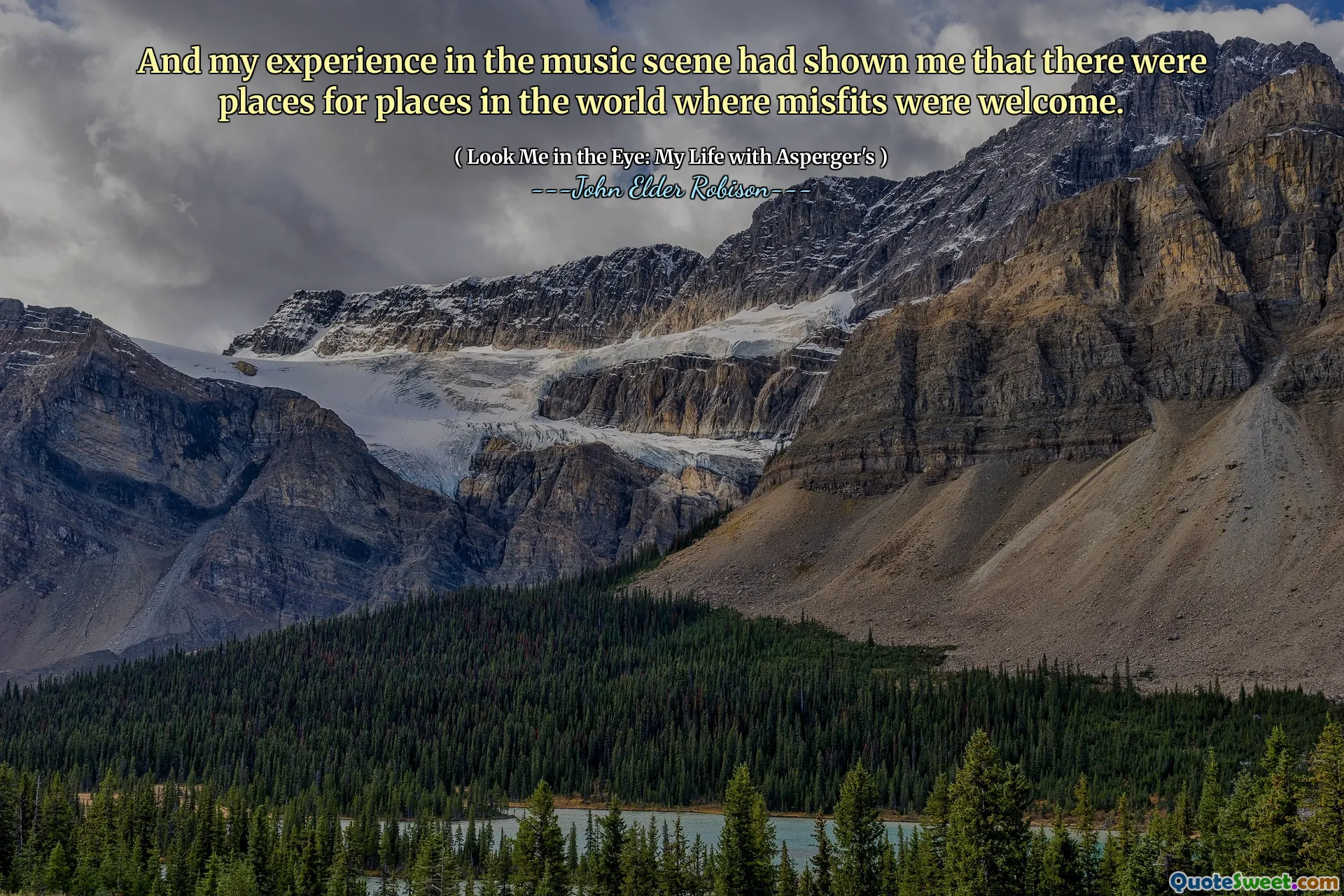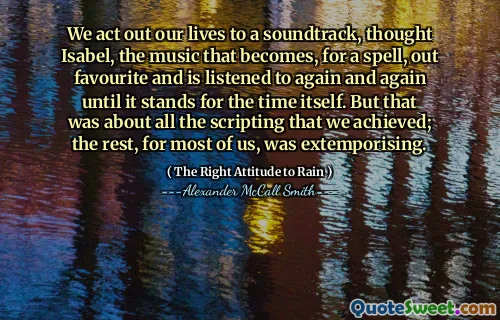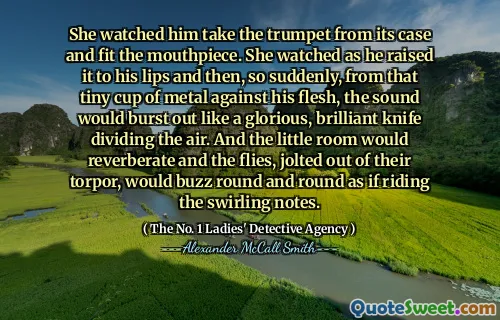
And my experience in the music scene had shown me that there were places for places in the world where misfits were welcome.
This quote highlights the powerful realization that certain communities and subcultures act as safe havens for those who feel like outsiders or misfits. In the context of the music scene, which is often seen as a rebellious, boundary-pushing domain, individuals who don't fit the conventional norms find acceptance and a sense of belonging. For many, music becomes more than just an art form; it transforms into a refuge where authentic self-expression is celebrated, and differences are embraced rather than stigmatized. Such environments foster a sense of community, empowerment, and identity for people who might otherwise feel misunderstood or alienated in mainstream society. The idea that the world has spaces where misfits are welcome offers hope and reassurance—an acknowledgment that everyone deserves a place where they can be truly themselves. It speaks to the importance of niche communities and cultural spaces that nurture diversity and individuality. Stories from the music scene often illustrate how music serves as a universal language that bridges differences and creates inclusive spaces. Recognizing and fostering these environments can lead to broader societal acceptance of diverse identities and experiences. This understanding underscores the vital role of subcultures in providing personal salvation and collective support for people who challenge societal norms, helping them to find their tribe and flourish within it.


